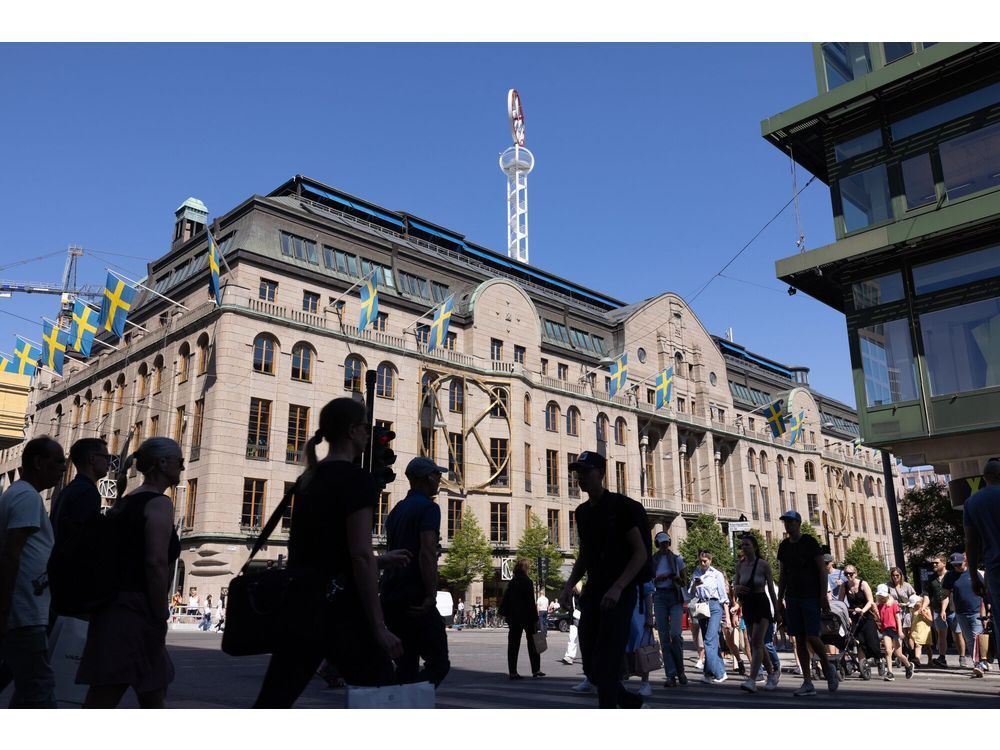
Article content
(Bloomberg) — Sweden’s underlying inflation slowed more than expected last month, paving the way for the Riksbank to continue taking borrowing costs lower.
The core inflation rate, which strips out energy costs and the effect of interest-rate changes, dropped to 2.3% in June, according to a statement from the statistics office on Friday. That was the lowest since December 2021, below all estimates in a Bloomberg survey as well as the central bank’s 2.5% forecast.
Article content
The data lends credence to the Riksbank’s bet that price pressures are subsiding to an extent that will allow it to cut its benchmark rate two or three times before the end of this year. It also increases the likelihood that the bank will reduce borrowing costs already at its next meeting in August.
The CPIF measure of inflation that the Riksbank targets also fell to 1.3%, its lowest level in more than three years. While the drop can be explained partly by base effects from brisk price increases in June last year, the central bank has forecast that CPIF will remain below its 2% goal through this year and next.
“Inflation developments support an easing of the monetary policy stance going forward, but the question is about timing and pace,” Svenska Handelsbanken AB’s head of forecasting, Johan Lof, said in a note. “Our forecast is for the next cut to come in September, but we will keep assessing incoming data and the economic outlook in coming weeks, and quite possibly change our Riksbank call.”
The reading follows a May outcome that was higher than expected, as accommodation prices surged in Malmo and Stockholm, which hosted the Eurovision Song Contest and three installments of Taylor Swift’s Eras tour, respectively.
Article content
Lof said the temporary inflation effect from those events may have been bigger than the statistics agency comments last month suggested, as the June data showed that weekend hotel prices by almost 16%.
The krona, which initially weakened by about 0.2% after the news, pared losses to trade at 11.4367 per euro as of 8:34 a.m. in Stockholm.
The Riksbank started taking its benchmark rate lower, to 3.75% from 4%, in May, and additional easing moves are set to provide much-needed fuel to a sluggish Swedish economy. The Nordic country is widely seen as more sensitive to interest-rate changes than many of its peers, as most household mortgages have rates fixed on short terms.
Analysts at Swedbank AB also suggested their calls for policy easing may need to be reviewed in light of today’s inflation print, while highlighting the risk that some service components may rebound in the next reading, the last before the Riksbank’s August decision.
“Nevertheless, inflation looks to yet again undershoot expectations and risks are tilted to more (and quicker) cuts than our current forecast of cuts in August, November and December,” Swedbank’s Carl Nilsson and Glenn Nielsen said in a note.
—With assistance from Mark Evans.
(Adds economist comments from fifth paragraph.)
Share this article in your social network